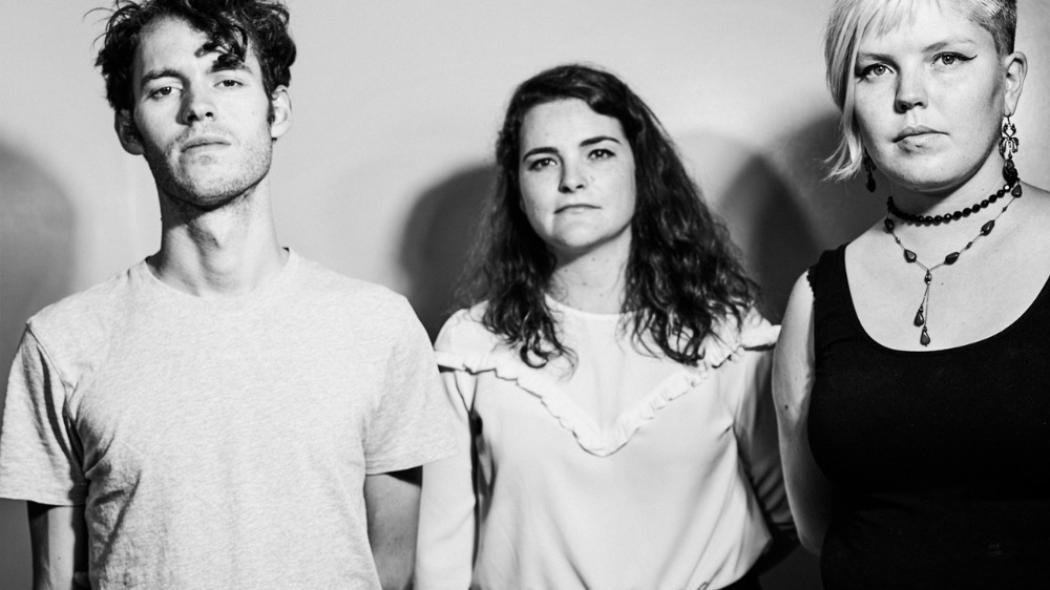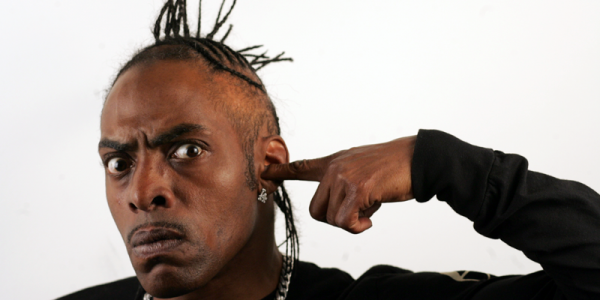“When did we become production units, when did we become the sum of all our parts that we can feed the right parts to achieve maximum efficiency?” McKechnie asks rhetorically, against the backdrop of Shauna Boyle and Nick Brown ’s pulsating rhythm attack. Eventually McKechnie has had enough. “I’m not a production unit,” McKechnie shouts, “I’m a human being.”
“I wrote most of those lyrics while stuck in traffic jams, or sitting on public transport, whenever I had the opportunity,” says McKechnie. “The song is mainly about the language that’s used to dehumanise people, the corporate double-speak that seems to be everywhere.”
McKechnie admits that while she enjoys her day job, sometimes the frustration of dealing with the seemingly endless trail of acronyms and vacuous language can boil over. “Don’t try and justify the work you’re doing just by using lots of acronyms,” she laughs.
The genesis of Cable Ties came at Wet Fest in the middle of 2015, a backyard festival of bands organised around Wet Lips, the local garage rock band in which McKechnie plays bass. She was interested in forming another band that deviated from Wet Lips’ garage punk style. McKechnie had seen Shauna Boyle playing bass in another local band; when McKechnie realised Boyle could also play drums, McKechnie invited her to play drums in a new band. When Nick Brown joined on bass, Cable Ties was born.
“Shauna and I are both big fans of [English band] Savages, so we took some inspiration from that. And when Nick came in, he helped push it into a more drawn-out, meditative sound,” McKechnie says.
Cable Ties made an immediate impression in Melbourne’s local scene. A friend of mine, whose awareness and assessment of local bands is without peer, started hassling me to see them in late 2015. “You’ve got to see Cable Ties,” he remarked in his soft, but authoritative Canadian tone. “They’re probably the best band in Melbourne.”
“It has been pretty incredible so far,” McKechnie says. “It seems like everything we’ve set out to do has happened, like playing at Meredith and playing with our heroes, like Peep Tempel.”
In March 2016 Cable Ties released a single, Save for Me/Walking Out, followed by a split 7” with Wet Lips in October 2016.
By 2016, Cable Ties had entered the studio with Paul Maybury to record their first album. McKechnie was also playing in two other bands, and studying law. Push came to shove and McKechnie decided to drop her legal studies and focus on punk rock. “The band had started up, I was in three bands, so it was hard to balance. I’d started studying law to try and set myself up for a career, but then I started to lose interest in law. I also started doing an honours degree, but I gave that up as well,” she laughs.
Postponed studies notwithstanding, Cable Ties’ songs illustrate McKechnie’s bent toward political commentary. “I’ve been writing political lyrics since I was in high school,” she says. In the ten-minute punk-rock jam Paradise, Cable Ties pick at the seams of the image of social welfare constructed by tabloid images of dole bludgers and drug addicts.
“That song came after an argument I had with an old school friend,” McKechnie explains. “She was saying that people who’re on welfare are on drugs, so on that song it’s like a conversation with people who think like that. What is the end point you reach when that’s your position?”
Listening to the self-indulgent bleating of baby boomers still basking in the fading glory of political battles of yore, and you might be forgiven for assuming society is beset by a wave of political apathy. Not so, says McKechnie. “Our performance is cathartic, but we also hope our lyrics can be analytical and provocative,” she says. “I think the apathy in young people comes from the sense that you can’t change things, but I don’t think young people are apathetic. I don’t see apathy around me.”







